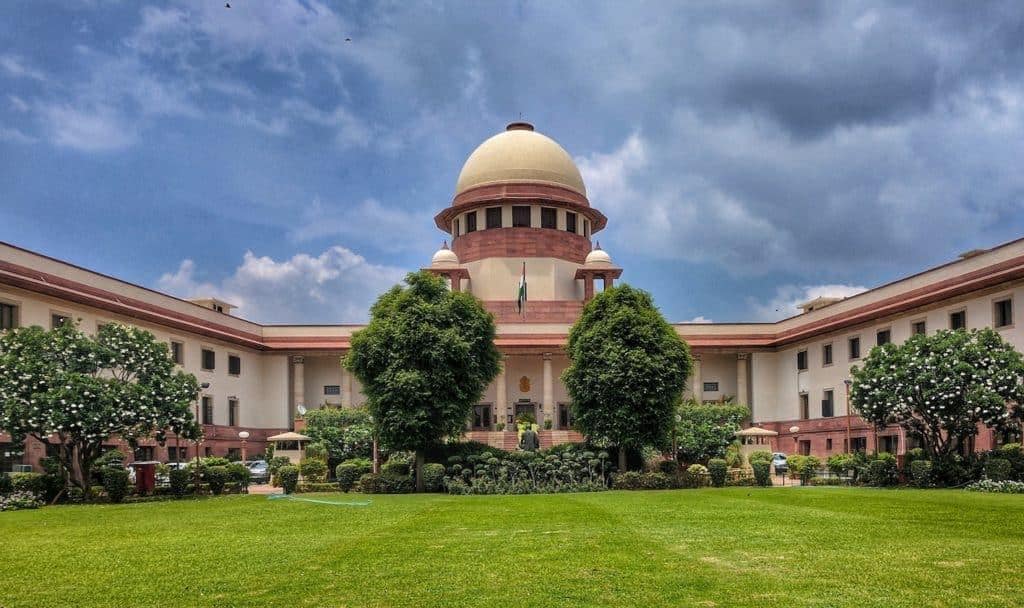SC tells Oppo to pay 23% of sale revenue in India to Nokia till Aug 25
The Supreme Court on Friday dismissed Oppo’s challenge to the recent Delhi High Court Division Bench order directing Oppo to deposit 23 per cent of the amount generated from its sales in India for infringing upon Nokia’s patent.
The HC order asked Oppo to furnish security payment of the India portion of the last-paid licence fee to Nokia in the patent infringement case.
The apex court refused to interfere with the division bench order of HC except for a short extension in time to comply with the HC direction to deposit monies in Court. “Time for compliance with the direction of the High Court is extended until August 25, 2023 conditional on the petitioner(Oppo) filing an undertaking before this Court within ten days that they shall comply with the order of the Division Bench,” the Bench of Chief Justice of India DY Chandrachud and Justices JB Pardiwala and Manoj Misra said.
Though the amount is confidential, the security payment will be 23 per cent of the amount paid under the 2018 License Agreement. This is because Oppo’s India portion is 23 per cent of its global sales.
“Keeping in view the status of Oppo as an ex-licensee, its admission that its phones use Nokia’s patents, its willingness to renew the 2018 Agreement and make interim payments as late as June 2021, the fact that it has approached a Court in China for determining a FRAND (Fair, Reasonable and Non-Discriminatory (FRAND) rate as well as the consistent practice of this Court and the financial condition of Oppo, this Court is of the view that the impugned judgment is contrary to the facts as well as settled principles of law,” the High Court order of July 3 said.
The issue arose from Nokia’s appeal against an order of November 17 last year dismissing its application. Nokia had sought a direction from Oppo to deposit interim security of an amount based on either the latest counter-offer made by Oppo for a global licence of Nokia’s portfolio of Standard Essential Patents or of an amount equivalent to the royalty paid under the (2018 Agreement) proportionate to the ratio of the number of devices sold by Oppo in India vis-à-vis the number of devices sold globally.
Nokia had told the court that Oppo had secured a licence for the use of Nokia‟s Standard Essential Patents in 2018 for a period of three years (expiring on 30th June, 2021) after making a payment under the 2018 Agreement). The said 2018 Agreement was a cross-licence agreement for patents belonging to both parties.
Nokia said that the 2018 Agreement did not include patents relating to the 5G standards and considering that 52 per cent of Oppo’s sales in India and 64 per cent of its global sales consist of 5G devices, any new licence fee would be substantially higher.
Nokia said that after the expiry of the 2018 Agreement, Oppo had witnessed an unprecedented increase in the sale of its devices and during the period between July, 2021 and December, 2022, it sold around 77 million devices in India without paying a single rupee in royalty to Nokia. It claimed that despite its efforts including making itself available for discussions on the technical and economic fronts, Oppo refused to execute a fresh/second licence agreement.
Upon failure of execution of the fresh/second licence agreement between the parties, Nokia moved the Delhi High Court for infringement of its three Standard Essential Patents on the ground of unlicensed manufacture, sale etc. of cellular devices which comply with 2G, 3G, 4G and 5G telecommunication standards by Oppo.
Nokia was represented by senior advocate Abhishek Manu Singhvi along with Team Anand and Anand comprising advocates Pravin Anand, Vaishali Mittal, Siddhant Chamola, and Rohin Koolwal.
